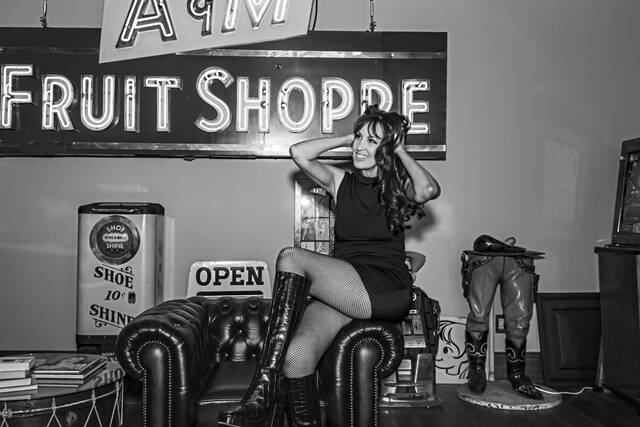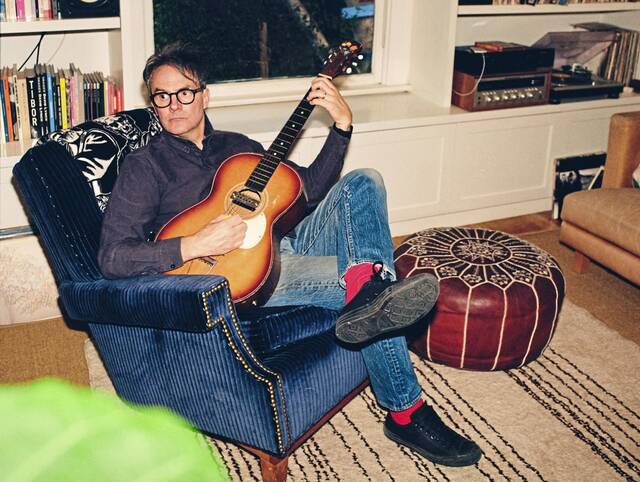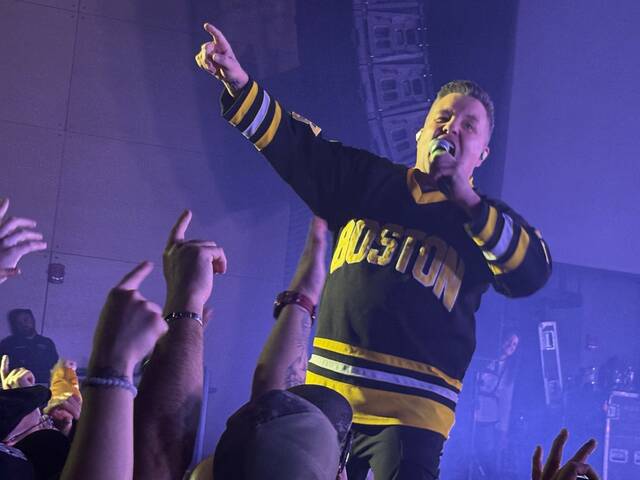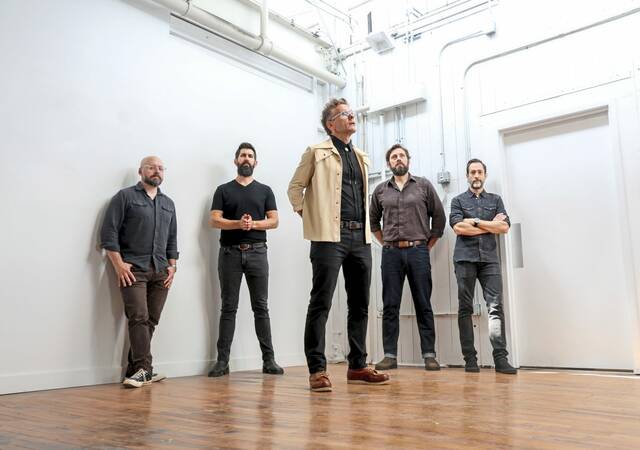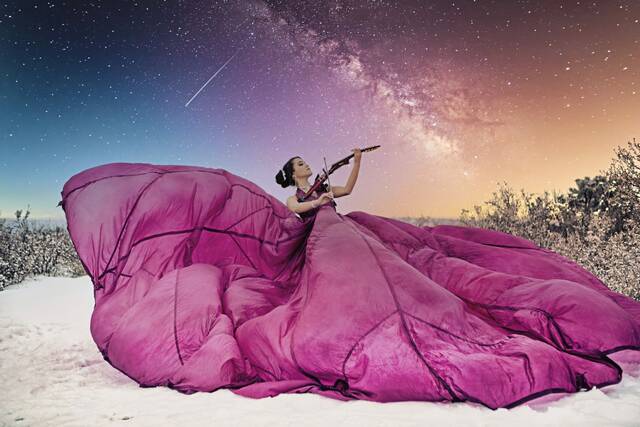For those who haven’t seen a Low Cut Connie show before, it’s a sweaty, physical night of music.
Or as frontman Adam Weiner puts it: “Rock ‘n’ roll. High-energy, full-contact, cathartic, life-affirming rock ‘n’ roll.”
Weiner, who frequently ends up with ripped shirts during live shows, has led the Philadelphia-based band since 2010, earning praise from Rolling Stone and gaining star fans like Elton John and Bruce Springsteen along the way. A frequent visitor to Pittsburgh in recent years, Low Cut Connie will be back on Saturday for a show at Mr. Smalls Theatre in Millvale.
In recent shows, Weiner has encouraged fans to put their arms around each other as a bonding gesture.
“I think it’s so important that people feel connected to each other. There’s so much in this world that drives us apart, I want people to make a new friend at our show,” he said. “… It’s going amazing. It’s an awkward thing to ask people to do, but they do it, and I think we’ve started a lot of nice friendships.
“We need to try to do that more because, not only are we so culturally divided, but we’re also digitally absorbed that it just becomes harder to make friends in real life.”
A central component of the Low Cut Connie show is the upright piano, nicknamed Nellie, that Weiner plays and uses as a physical prop.
“It’s only 400 pounds so…” he said with a laugh. “It’s a pain in the (butt). We bring it everywhere. We’ve been doing it for over a decade. It’s not easy, but we do it and it’s worth it. There’s nothing like a real piano.”
As for whether the band wishes the piano was a little bit lighter?
“Well, I’ve had 30 people in the band over the years, so you can you figure that part out,” Weiner said, “but it’s good since it’s harder to get into the gym when we’re on the road. It’s a good workout.”
In a recent call from south Philadelphia, Weiner discussed his stage persona, the film “Art Dealers” and playing the Tree of Life benefit concert in Pittsburgh:
Do you feel like you’re a different person when you’re on stage versus when you’re off the stage?
I think I’m a truer version of myself on stage because when you’re off stage, when you’re in your normal daily life, we all have anxieties: How do I look today? Am I being polite enough? Am I being male enough? Female enough? Am I being courteous? Am I saying the right thing? When you’re on stage, you don’t have to think about any of that. You can kind of be yourself and let it rip.
You recently released the hybrid concert film/documentary “Art Dealers.” When did you realize that that movie needed to be made?
During the pandemic, I felt like I had kind of screwed up because I just never had done a good job of capturing video over the prior decade, and I didn’t feel like, other than some real scratchy-looking videos on YouTube, I just didn’t feel like there was anything out there that really captured what we built over a decade, since 2010, and it bothered me. And then when we came back to touring, we tested the waters with a few shows at the end of ‘21, and the crowds had grown, and just the vibe had grown, and I thought, you know what? Let’s make a film right now. Let’s do it. Just as the masks were going away is when we filmed. You can actually see in the film that some people are still wearing masks. And so there was a cathartic energy as people sort of got back to being around each other and feeling alive again.
Besides the live show, was there anything else that you wanted the movie to capture about the band?
Yeah, I mean, we’re a working class band, and we see these films that come out over the last few years: Taylor Swift, Beyonce, (Lady) Gaga, that depict the top 0.1% of this industry. But we’re a little band that’s out there changing our clothes in a parking lot, moving a piano up a flight of stairs, and my band members are delivering pizzas and cooking burgers, etc., working in a factory, when they’re off the road. And this is the part of the story that people don’t see and I wanted people to see that. A lot of people don’t know what it is to be a working artist in America. … We don’t see this picture where people show the struggle and the grit and the grime with it because, in social media, we present a sort of manicured version of everything. And I didn’t want to do that. I want people to see what really goes into it to put a show on it and make the magic trick happen.
Related
• Goose singer/guitarist Rick Mitarotonda talks spontaneity, new stage setup ahead of Pittsburgh show• Iron Maiden, Kacey Musgraves, Dave Matthews Band highlight top November concerts in Pittsburgh
• 2024 Pittsburgh area concert calendar
Did you learn a lot about yourself while making this movie? Did you ever have experience in filmmaking before this?
I had written music for little films and videos and things, but I’d never made a feature-length film. And I fell in love with filmmaking during this project. I hope to do more. And I guess I just kind of learned that I’m not really in the music business. I’m in the entertainment business. Because it felt very natural making the film, just like it felt natural doing a radio show that I did this year and my livestream series that I did for a couple years. Playing in a band is not the full extent of everything that I do. I can entertain people in all different ways.
What are your memories of the Tree of Life benefit concert here in 2018. And how important was that for you to play that show?
The footage from the Tree of Life Synagogue benefit concert from the end of 2018, it’s in the film, it’s very powerful. I’ve never been as nervous to do a show as I was for that. WYEP in Pittsburgh has been really big supporters of ours. And we had just done an event for them outside in the park in Pittsburgh and this was 2017. At that event, there was a little bit of turmoil. You do these free shows in the park, you never know what happens, right? So there were people of different political persuasions that showed up to our show and were fighting with each other. And I had to do some real crowd control, and WYEP, I think they really appreciated that because they were the presenter of that event.
When the tragic shooting happened, they asked if we would be part, come over from Philly to be part of this benefit. It’s not like any other show. You have people from the synagogue there. People were really in pain, and I didn’t feel like I could just go out on stage and be crazy and outrageous and funny. I think we had to acknowledge what was happening and what the community was feeling. And you can see in the film what I said and how I dealt with it. It was very powerful the way we all uplifted each other at that event. And that is the power, I think, of live music. It really can unite people. It can really, really, truly elevate people’s spirits. I’m very, very proud of that show. And it was an honor to be of service.



